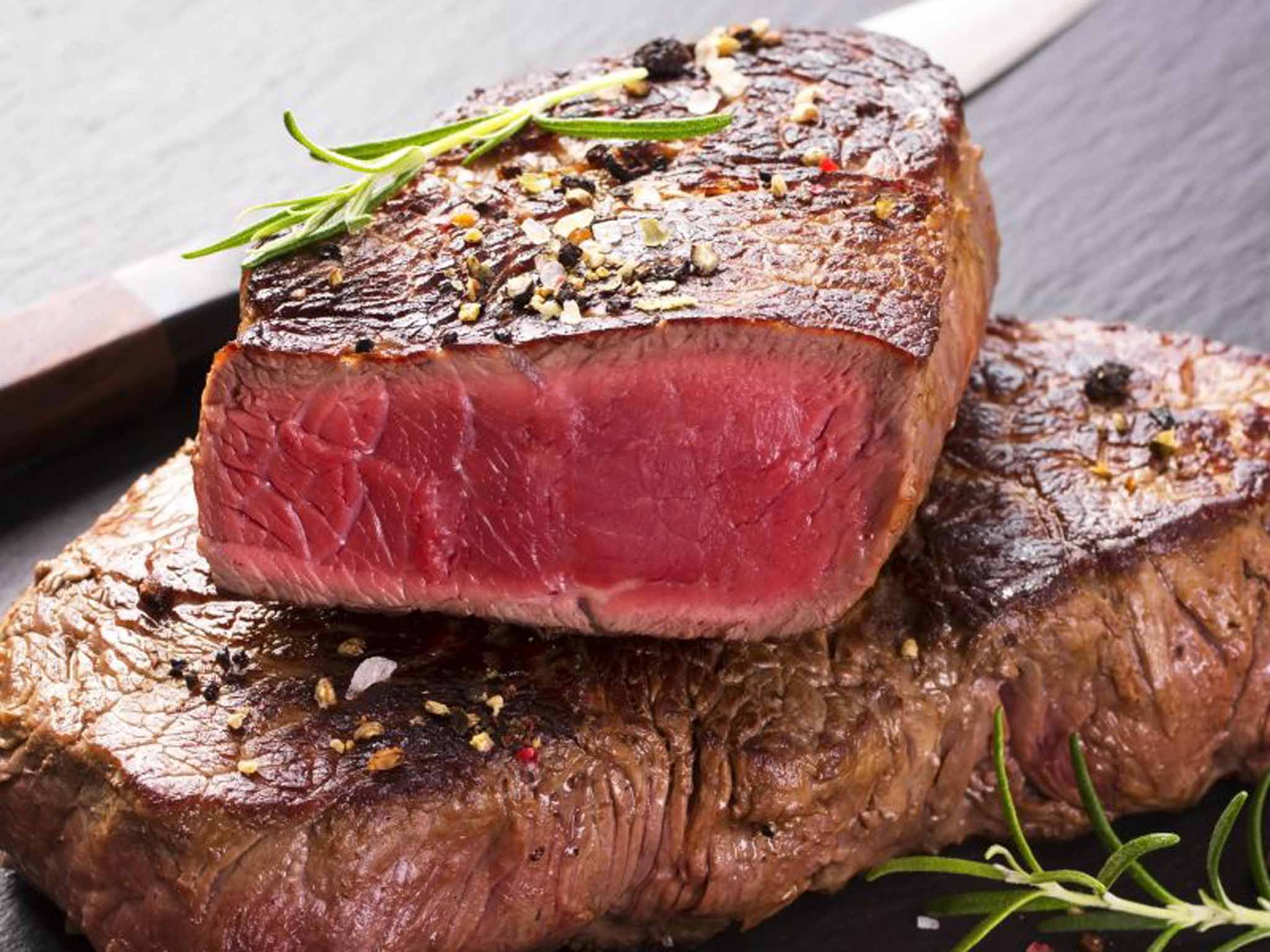Donald Trump: The most depressing thing about how the Republican frontrunner orders his steak
For Donald Trump, the opinion of world renowned gourmands is not enough

Your support helps us to tell the story
From reproductive rights to climate change to Big Tech, The Independent is on the ground when the story is developing. Whether it's investigating the financials of Elon Musk's pro-Trump PAC or producing our latest documentary, 'The A Word', which shines a light on the American women fighting for reproductive rights, we know how important it is to parse out the facts from the messaging.
At such a critical moment in US history, we need reporters on the ground. Your donation allows us to keep sending journalists to speak to both sides of the story.
The Independent is trusted by Americans across the entire political spectrum. And unlike many other quality news outlets, we choose not to lock Americans out of our reporting and analysis with paywalls. We believe quality journalism should be available to everyone, paid for by those who can afford it.
Your support makes all the difference.There are few things as regrettable as a steak well done. Cooking meat to the point of leathery toughness dulls the flavor, among many other things. “Forgive my snobbishness, but well-done meat is dry and flavorless,” Mark Bittman wrote in 2007, imploring people to serve hamburgers “rare, or at most medium rare.” And he's not alone. The list of reputable voices who don't recommend eating meat well done is long.
And yet, for Donald Trump, the opinion of world renowned gourmands is not enough.
On 15 March, the New York Times published a story about the life of the Republican frontrunner, as told through the eyes of his longtime butler. Tucked inside of it was this, a juicy (or, really, not juicy at all) tidbit about Trump's eating habits:
He understands Mr. Trump’s sleeping patterns and how he likes his steak (“It would rock on the plate, it was so well done”), and how Mr. Trump insists — despite the hair salon on the premises — on doing his own hair.
It's hard to repeat that—“it would rock on the plate”—without cringing, as many have rushed to point out. Vox, New York Magazine, The Huffington Post, and countless other outlets have written about the disappointing quirk.
But disappointing as Trump's preference for chewy, indiscernible, overcooked mouthfuls of meat might be, it's worth stepping back—away from the realm of judgmental meat eaters, like us—to process how the people feel about it. And you know what? They probably feel all right, because a surprisingly large percentage of Americans prefer the same.
For instance, a 2014 survey by 538 found that fully one-quarter of Americans said they liked their steak done “well” or “medium-well.” Is this Trump's base? Hard to tell, since there weren’t enough steak-eaters in the 538 survey to break out demographic groups. But we can turn instead to a 2012 60 Minutes/Vanity Fair survey that asked 1,000 Americans how they liked their burgers done.
The results shock the conscience. Thirty-six percent of respondents said they liked their burgers well done, making that the most popular response. Another 29 percent liked medium burgers, 19 percent prefer medium-rare, and only 4 percent cook their burgers rare.
Digging into the demographics, a few interesting patterns stand out. First, preference for overcooked meat is strongly correlated with age. Forty-six percent of senior citizens prefer their burgers well done, compared to only 27 percent of those aged 18 to 29.
The less-educated are also more likely to prefer well done burgers – 47 percent of those with a high school education or less like their burgers well done, compared to only 25 percent of those with a college or advanced degree.

There’s a similar relationship with income, with people in higher-income households less likely to overcook their burgers than people in low-income households.
Interestingly, the numbers are somewhat scrambled when it comes to party and ideology. Democrats (43 percent) are somewhat more likely to prefer well done burgers than Republicans (32 percent) or Independents (33 percent). But on ideology, there’s virtually no difference on burger preference between self-identified liberals, moderates and conservatives.
Still, it’s interesting that preference for well done meat appears to be concentrated among the demographic groups – older, less-educated and less-wealthy Americans – that have formed the core of Donald Trump’s support so far. As pollster Ariel Edwards-Levy remarked,
The takeaway isn't that ordering meat well done is an acceptable practice—we, along with all the other right-minded people in the world, maintain that it is a misguided choice, always. Rather, it's that shaming Trump for his misguided meat habits when there's a plethora of people out there who do the same, is missing the forest for the tree with funny hair.
In 1982, the New York Times posited that the tradition “of eating well-done or overcooked meat...may finally be heading for extinction.” Clearly that hasn't panned out.
Copyright: Washington Post
Join our commenting forum
Join thought-provoking conversations, follow other Independent readers and see their replies
Comments